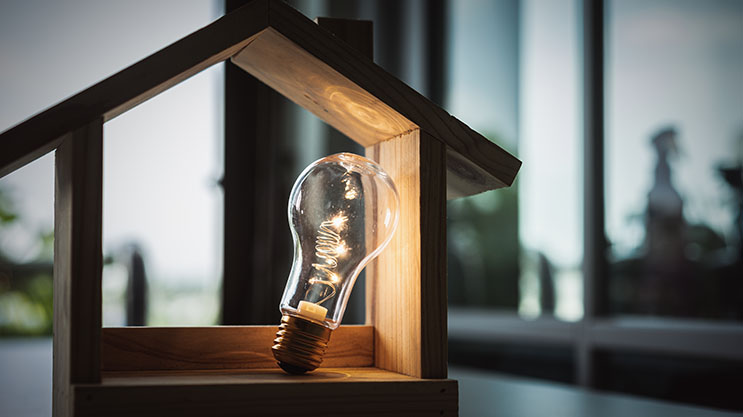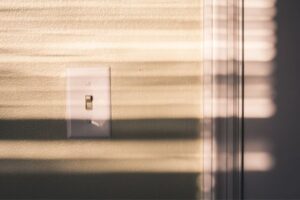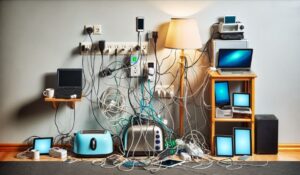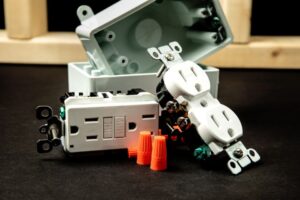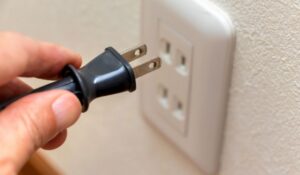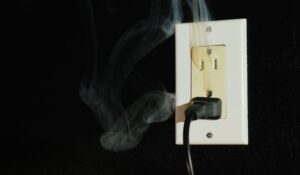Electricity is a powerful and essential source of energy that powers our homes, offices, and industries. However, electricity can also be dangerous and can cause serious injuries or even death if not handled properly. It is crucial to practice electrical safety to prevent electrical accidents and ensure the safety of yourself and your loved ones.
Below we have provided some electrical safety tips to help you stay safe while using electrical devices and appliances.
Home Electrical Safety Tips
Electricity is an essential part of our daily lives, and we rely on it for a wide range of activities, from turning on the lights in the morning to charging our phones at night.
However, sometimes our electrical systems can wreak havoc in our daily lives if we don’t use the proper safety precautions.
To enhance electrical safety and minimize electrical hazards at home, it is recommended to:
- Prevent overloading outlets and circuits.
- Utilize ground fault circuit interrupters.
- Ensure proper maintenance of electrical cords and appliances.
- Unplug appliances when they are not in use.
- Choose the appropriate wattage for light bulbs.
1. Avoid Overloading Outlets and Circuits
One of the common causes of electrical fires is overloading outlets and circuits. Overloading happens when:
- You plug too many appliances into a single outlet or circuit
- The overuse of extension cords and power strips can also lead to overloading
To prevent overloading, avoid using too many appliances in the same outlet, and use surge protectors instead of power strips.
2. Use Ground Fault Circuit Interrupters (GFCIs)
Ground Fault Circuit Interrupters (GFCIs) are safety devices that are designed to protect you from electrical shocks. This is especially true if you’ve got any dangerous ungrounded outlets in your home.
They work by quickly cutting off the power to an outlet if they sense a ground fault.
What is a ground fault? It’s a short circuit that occurs when electricity flows through a person’s body to the ground.
3. Check Electrical Cords and Appliances for Damage
Damaged electrical cords going to microwaves, refrigerators, etc. can be a safety hazard. Here are some things to look for to determine if your cords and appliances have sustained damage:
- Fraying of cords
- Exposed wires
- Cracked or broken plugs or connectors
- Loose or wobbly electrical outlets
- Appliances that emit strange smells or make unusual sounds
- Frequent circuit breaker trips could be an indicator of damaged cords and appliances
Frayed cords and damaged appliances can cause electrical shock or fires. Always check the cords and plugs of your electrical devices for any signs of damage before use. If you notice any damage, replace it immediately.
4. Unplug Appliances When Not in Use
Leaving appliances plugged in when not in use is a common cause of electrical fires. To prevent electrical fires, always unplug appliances when they are not in use.
Also, do not leave appliances such as televisions and computers plugged in overnight as they can consume electricity even when not in use.
5. Use the Right Wattage Bulbs
Using light bulbs with a wattage that is too high for a fixture can cause the fixture to overheat and potentially cause a fire. Two important things to consider when changing lightbulbs are:
- Always check the maximum wattage recommended for a fixture before installing a light bulb
- If the recommended wattage is not available, use a lower-wattage bulb instead.
The Dangers of Water and Electricity
Water is a good conductor of electricity, and contact with water can cause electric shock or electrocution.
Keep Electrical Appliances Away from Water
When using electrical appliances, make sure they are kept away from water sources, such as:
- Sinks
- Bathtubs,
- and pools.
If you need to use an electrical appliance in a wet area, use a GFCI-protected outlet and make sure your hands are dry before handling any electrical equipment or appliances.
Never Touch Electrical Devices with Wet Hands
As mentioned earlier, water is a good conductor of electricity, and contact with electrical devices with wet hands can cause electrocution. Never touch electrical devices, switches, or outlets with wet hands.
It’s important to always make sure your hands are dry before handling electrical appliances or devices.
Electrical Hazard Prevention
Electrical hazard prevention is critical for the safety of individuals, in order to keep you and your loved ones safe it is important that you have the right equipment in your home in case anything does happen.
Install Smoke Detectors
Most homes already have these installed as it’s a legal requirement for most home rental companies and they don’t want to be liable for any damages if the proper equipment is not available. However, if there is not already a smoke detector installed, it’s important that you get one installed as it can detect smoke before a fire happens.
Have a Fire Extinguisher
In the event that a fire does occur, having a fire extinguisher in your home can help you to put out small fires before they spread.
There are 2 things to remember when acquiring a fire extinguisher:
- Make sure you have a fire extinguisher that is appropriate for the types of fires that can occur in your home.
- Keep the fire extinguisher in a location where it is easily accessible
Summary
Practicing electrical safety is crucial for preventing electrical accidents and ensuring the safety of your loved ones. By following the safety tips mentioned in this article, you can avoid overloading circuits, prevent electrocution, and minimize the risk of fires caused by faulty electrical devices. Remember, electricity is a powerful energy source that must be treated with caution, and by practicing electrical safety, you can protect yourself and your family from potential hazards. It’s Important to remember that if you are having electrical problems that preventative methods do not cover, that you speak with a professional or licensed electrician for help.


